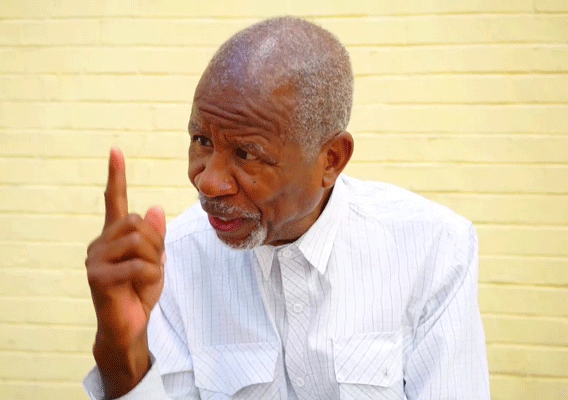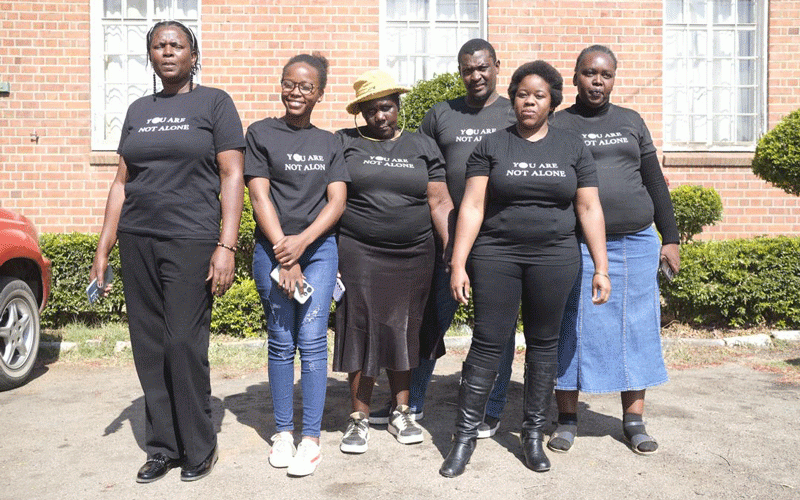
BY SHARON SIBINDI
lecturer, foodie, chef and farmer, Makhosi Mahlangu has penned a book titled Our Food, Our Heritage, Our Future, which reveals the serious cultural erosion as people move away from traditional foods at a time there is little documentation of indigenous foods.
The book, which has 14 chapters, is an in-depth look at traditional African food with particular emphasis to the Ndebele way of cooking.
Mahlangu collaborated with historian Pathisa Nyathi, Njathi Kabui, Delta Mbonisi Sivalo, Roger Coianiz and Sarah Savory with illustrations from award-winning artists George Masarira and Ishmael Singo.
“The book looks at traditional or indigenous foods from a Ndebele cultural perspective. In doing this, there is need to learn the primary production systems, fruit and vegetable processing methods, milk processing and other typologies of foods consumed by these people,” Mahlangu told Standard Style.
“The book has been written at a time we are facing food crisis from obesity to hunger. The use of our traditional foods offers a viable and sustainable food initiative. There has been serious cultural erosion with people moving away from traditional foods. It is for this reason we decided to pen about these rich diversified foods.”
He said the journey goes back in time highlighting the quest to develop new culinary trends.
“A lot of food stories have still not been fully exploited and told in Africa, as most are still hidden as oral stories in the minds of our grandmothers,” he said.
- Chamisa under fire over US$120K donation
- Mavhunga puts DeMbare into Chibuku quarterfinals
- Pension funds bet on Cabora Bassa oilfields
- Councils defy govt fire tender directive
Keep Reading
“The future of African food will embrace all these elements and create a new food industry which embraces the spirit of ubuntu, sustainable harvesting and basic food processing techniques.”
Mahlangu said African villages remain the main source of food information in the continent and still, this rich source of food literature remains underutilised.
“This book brings science, human determinism, intuition, food artistry, history and technology into one pot to develop future food production systems using locally based resources and techniques,” he said.
Mahlangu said the book targets people who have an appetite for traditional foods.
“We are also targeting culinary colleges which often serve Western dishes at the expense of local traditional meals which are consumed by the majority of people across Zimbabwe considering that about 70% of people reside in villages in Zimbabwe,” he said.
“There is also very little literature that has been documented regarding our own indigenous foods. We are aiming to launch the book at the end of the month and hope it will be a blueprint for the future African restaurant which is already in the pipelines.
“We also want the book to be used in numerous colleges and schools as the foundation of traditional foods.”
Mahlangu said when he used to stay in Italy, he learnt about their rich food culture and it pushed him to start writing something on indigenous foods.
“At first we had begun writing a book showing the different foods in Italy and Zimbabwe. I can admit my knowledge of indigenous meals was sketchy and we stopped writing the book.
“I came back to Zimbabwe and started researching about the traditional foods and was shocked that it wasn’t documented. We have managed to record videos showing the preparation of traditional foods through my younger brother Prince Sivalo Mahlangu,” he said.
Mahlangu said besides the book, they aim to create new food chains with ingredients that are sourced locally.
“This includes use of indigenous fruits in cake premixes and ice creams to mention a few. The new food chains will embrace the spirit of ubuntu. We want to develop the modern food chains which are sustainable and have low carbon footprints,” he added.











